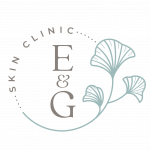Rosacea is a chronic skin condition that primarily affects the face, causing redness, visible blood vessels, and sometimes acne-like bumps. While it’s a common condition, affecting millions worldwide, it is often misunderstood.
What Causes Rosacea?
The exact cause of rosacea is not fully understood, but research suggests a combination of genetic, environmental, and immune-related factors. Key contributors include:
Genetics: A family history of rosacea increases the likelihood of developing the condition.
Abnormal Immune Response: Some individuals with rosacea have heightened immune responses to skin microorganisms, such as Demodex mites and certain bacteria.
Vascular Abnormalities: Abnormalities in facial blood vessels can lead to the characteristic redness and flushing.
Triggers: Certain lifestyle and environmental factors can exacerbate rosacea symptoms, including:
Spicy foods
Hot beverages
Alcohol
Extreme temperatures
Stress
Sun exposure
Preventing Rosacea Flare-Ups
While there is no guaranteed way to prevent rosacea, you can minimise flare-ups by:
Identifying and Avoiding Triggers: Keep a journal to track potential triggers and avoid them whenever possible.
Sun Protection: Use a broad-spectrum sunscreen with SPF 30 or higher daily to protect against UV-induced inflammation.
Gentle Skincare: Avoid harsh products and abrasive exfoliants that irritate sensitive skin.
Stress Management: Practice relaxation techniques such as yoga or meditation to keep stress levels under control.
Dietary Adjustments: Reduce intake of spicy foods, alcohol, and other common nutritional triggers.
Treating Rosacea
Treatment for rosacea varies depending on its severity and symptoms. Common approaches include:
Topical Treatments:
Metronidazole: An anti-inflammatory gel or cream.
Azelaic Acid: Reduces redness and pimples.
Brimonidine: Temporarily constricts blood vessels to reduce redness.
Chemical peel treatments with specifically chosen ingredients for your rosacea concerns can do wonders.
Laser and Light Therapies:
Intense Pulsed Light (IPL) or laser therapy can reduce visible blood vessels and redness.
Lifestyle Modifications:
Consistent skincare routine and avoiding known triggers.
It’s essential to consult a dermatologist for a personalised treatment plan tailored to your skin type and rosacea subtype.
Skincare Products for Rosacea: What to Use and Avoid
Ingredients to Look For:
Soothing Agents:
Niacinamide: Calms inflammation and strengthens the skin barrier.
Aloe Vera: Provides cooling and soothing effects.
Green Tea Extract: Reduces redness and irritation.
Hydrating Ingredients:
Hyaluronic Acid: Maintains moisture without irritating.
Ceramides: Repair and reinforce the skin’s natural barrier.
Anti-Inflammatory Ingredients:
Azelaic Acid: Targets inflammation and redness.
Centella Asiatica: Promotes healing and reduces sensitivity.
Sun Protection:
Mineral-based sunscreens containing zinc oxide or titanium dioxide are gentle and effective.
Ingredients to Avoid:
Alcohol and Fragrances: Can dry out and irritate the skin.
Harsh Exfoliants: Physical scrubs or high concentrations of AHAs/BHAs can aggravate symptoms.
Essential Oils: While natural, many essential oils can trigger sensitivity.
Menthol, Camphor, and Eucalyptus: Known to cause irritation and flushing.
Product Recommendations:
Cleansers:
Gentle, sulfate-free options include Cetaphil Gentle Skin Cleanser or La Roche-Posay Toleriane Hydrating Gentle Cleanser.
Moisturisers:
Formulas like CeraVe Moisturizing Cream or Aveeno Calm + Restore Oat Gel Moisturizer.
Sunscreens:
Mineral sunscreens like EltaMD UV Clear or La Roche-Posay Anthelios Mineral.
Treatment Products:
The Ordinary Azelaic Acid Suspension 10% or Paula’s Choice 10% Niacinamide Booster.
Tips for Managing Rosacea Long-Term
Consistency is Key: Stick to a gentle skincare routine without frequent changes.
Avoid Overheating: Use lukewarm water instead of hot and avoid steamy environments.
Stay Hydrated: Both internally by drinking water and externally by using hydrating skincare.
Seek Professional Advice: Regular check-ins at our clinic can help monitor progress and adjust treatment plans.
Rosacea is a complex condition that requires a tailored approach for effective management. By understanding its causes, adopting preventive measures, and using the right skincare products, you can keep symptoms under control and improve your skin’s overall health. Remember to come in for free consultation to understand your rosacea. With the right strategy, living confidently with rosacea is entirely achievable and we are here to help.

